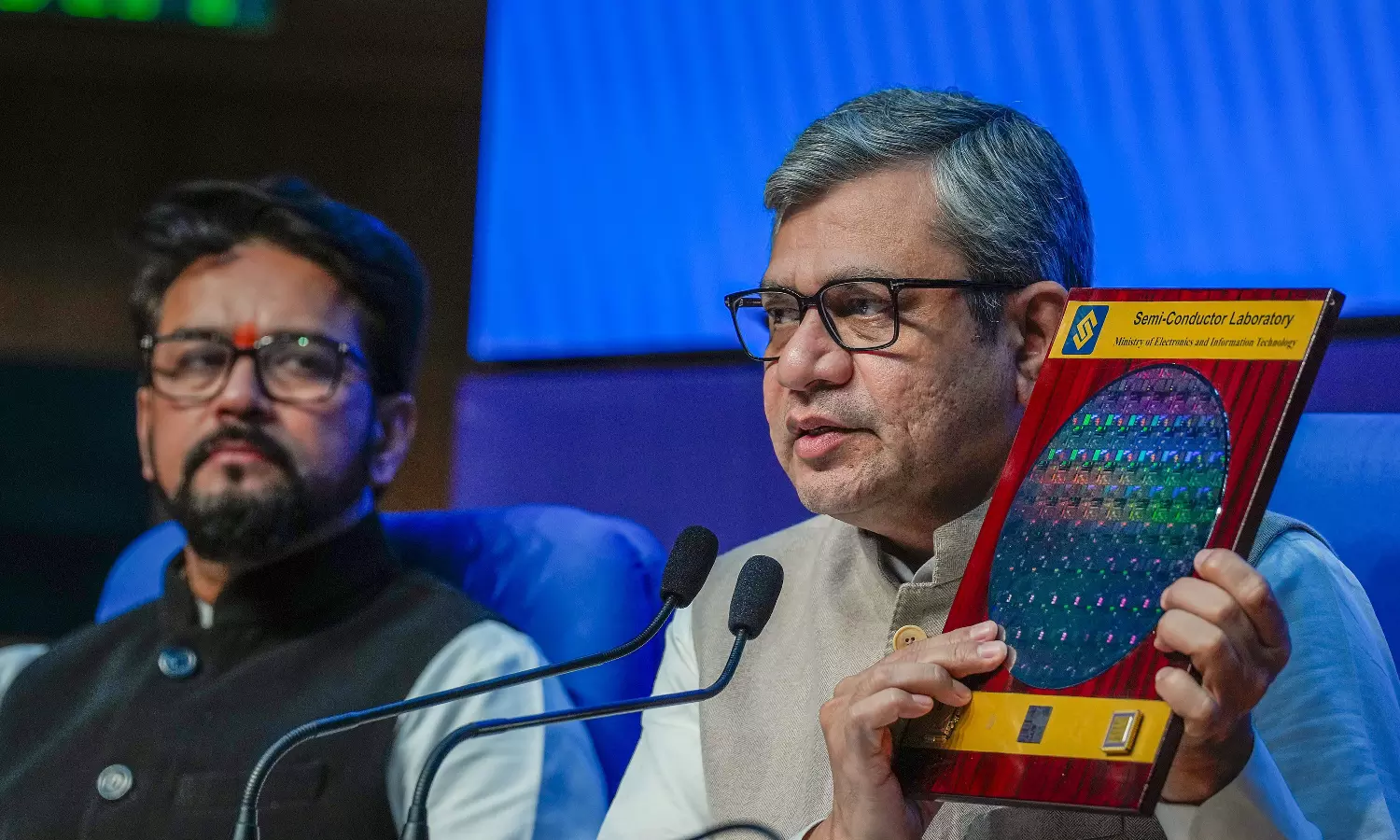Union Cabinet Clears Rooftop Solar Scheme, Semiconductor Plants, and Fertilizers Subsidy Ahead of Lok Sabha Polls
Major decisions include a rooftop solar scheme, semiconductor plants in Gujarat and Assam, and fertilizers subsidy for the upcoming kharif season, aiming at economic and environmental benefits;

New Delhi: Ahead of Lok Sabha polls this year, the Union cabinet on Thursday cleared a host of key decisions, including rooftop solar scheme with an outlay of over Rs 75,000 crore, three semiconductor plants with an investment of Rs 1.26 lakh crore in the states of Gujarat and Assam and fertilisers subsidy of over Rs 24,000 crore to the farmers for the upcoming kharif season.
Briefing media after the cabinet meeting, I&B Minister Anurag Thakur said that the approval of a rooftop solar scheme, PM-Surya Ghar: Mufti Bijli Yojna, with an outlay of Rs 75,021 crore, has been cleared by the government to provide up to Rs 78,000 subsidy for the installation of solar plants and 300 units free power for one crore households. Prime Minister Narendra Modi has launched the scheme on February 13, 2024 in which it provides a central financial assistance (CFA) of 60 per cent of system cost for 2 kW systems and 40 percent of additional system cost for systems between 2 kW to 3 kW capacities. The CFA will be capped at 3 kW.
At the current benchmark prices, this will mean Rs 30,000 subsidy for 1 kW system, Rs 60,000 for 2 kW systems and Rs 78,000 for 3 kW systems or higher. The households will apply for subsidy through the National Portal and will be able to select a suitable vendor for installing rooftop solar.
As per the government, the households will be able to access collateral-free low-interest loan products of around 7 per cent at present for installation of residential RTS (rooftop solar) systems up to 3 kW. Other Features of the scheme include a model solar village to be developed in each district to act as a role model for adoption of rooftop solar in rural areas.
The proposed scheme will result in the addition of 30 GW of solar capacity through rooftop solar in the residential sector, generating 1000 BUs (billion units) of electricity and resulting in reduction of 720 million tonnes of CO2 equivalent emissions over the 25-year lifetime of rooftop systems. However, it is estimated that the scheme will create around 17 lakh direct jobs in manufacturing, logistics, supply chain, sales, installation, O&M and other services as well.
Apart from rooftop solar, the Centre also gave a nod to set up three semiconductor units in Gujarat and Assam with an estimated investment of Rs 1.26 lakh crore. The construction of all three units will start within the next 100 days, telecom minister Ashwini Vaishnaw said after the Union cabinet meeting.
Tata Electronics Private Limited will set up a semiconductor fab in partnership with Powerchip Semiconductor Manufacturing Corp (PSMC), Taiwan. This unit will be constructed in Dholera, Gujarat and the plant will attract Rs 91,000 crore investment. Tata Semiconductor Assembly and Test Pvt Ltd will set up a semiconductor unit in Morigaon, Assam, at an investment of Rs 27,000 crore.
“CG Power -- in partnership with Renesas Electronics Corporation, Japan, and Stars Microelectronics, Thailand -- will set up a semiconductor unit in Sanand, Gujarat. Investment in the Sanand unit is estimated at Rs 7,600 crore,” Mr Vaishnaw informed.
Meanwhile, the government also announced a Rs 24,420 crore subsidy on Phosphatic and Potassic (P&K) fertilisers for the kharif season, saying that the farmers will continue to get key soil nutrient Di-ammonium Phosphate or DAP at Rs 1,350 per quintal. Besides, DAP, the government asserted that retail prices of other major P&K fertilisers would remain stable.
“A nutrient-based subsidy of Rs 24,420 crore on P&K fertilisers has been approved for the kharif season starting April 1 till September 30. The subsidy on Nitrogen (N) has been fixed at Rs 47.02 per kg, phosphatic (P) at Rs 28.72 per g, potassic (K) at Rs 2.38 per kg, and Sulphur (S) at Rs 1.89 per kg for 2024 kharif season,” Mr Thakur said.
In fact, the subsidy on phosphatic fertilisers has been increased to Rs 28.72 per kg for the 2024 kharif season from Rs 20.82 per kg in the 2023 rabi season. However, the subsidy on nitrogen (N), potassic (K) and Sulphur (S) has been kept unchanged for 2024 kharif season. “With this subsidy, DAP which is sold currently at Rs 1,350 per bag (50 kg), will continue to be available at the same rate in the upcoming 2024 Kharif season,” the minister said.

